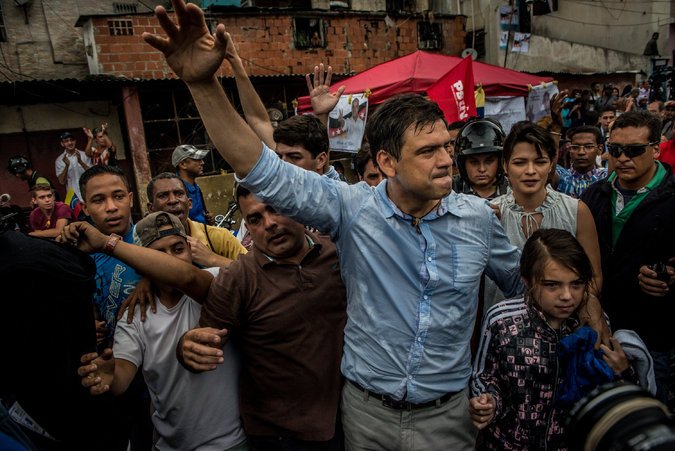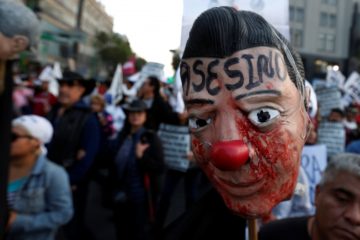The recent gubernatorial elections in Venezuela, in which Nicolas Maduro’s ruling Socialist Party unexpectedly won eighteen out of twenty-three state governorships, has promoted yet another salvo of criticism from domestic and international opponents of the regime. The opposition — the Democratic Unity Roundtable (MUD), a coalition of anti-Maduro parties — was expected to win in nineteen states but instead won just five. The integrity of the electoral process has come under fire from several quarters.
In Venezuela, the MUD alleges fraud and refuses to accept the results. Internationally, the US, or to use Maduro’s preferred term, “the empire”, roundly condemned the elections as neither free nor fair. Similarly, the EU’s High Commissioner for Foreign Affairs and Security Policy Federica Mogherini said that it is necessary “to find out what really happened”. The head of the Organization of American States Luis Almagro has argued that “the vote cannot be recognized”. The condemnations of the gubernatorial elections echo those which followed the elections for the controversial Constitutional Assembly held in July.

Nonetheless, having weathered the protests which brought Venezuela to a standstill earlier in the year, Maduro’s grip on power looks strong enough to overcome any flare-up surrounding these gubernatorial elections. He has even gone as far as to say the elections show that Venezuela has “the best electoral system in the world”.
The Venezuelan vote highlights the difficulties surrounding election monitoring and auditing. Election monitoring started to gain traction alongside the flourishing of international organizations after World War Two. Initially, monitoring focused on elections in fragile new nations emerging from colonial empires in Africa and Asia, but from the 1990s, more firmly established democracies have moved to audit their elections.
[perfectpullquote align=”right” cite=”” link=”” color=”” class=”” size=””]The Venezuelan vote highlights the difficulties surrounding election monitoring and auditing.[/perfectpullquote]One of the most prominent organizations devoted to securing free and fair elections is the UN Electoral Assistance Division. Its mission derives from the Universal Declaration of Human Rights, which states that “the will of the people, as expressed through periodic and genuine elections, shall be the basis of government authority”. Another such organization is the Office for Democratic Institutions and Human Rights – an agency of the Organization for Security and Cooperation in Europe (OSCE).

Though international institutions are important in that they provide an objective outside perspective, they often lack the networks to get things done that domestic electoral institutions can have. In the Americas, the Mexican Federal Electoral Institute (IFE), Brazilian Superior Electoral Court (TSE), the Argentinian National Electoral Chamber, and the US Election Assistance Commission (EAC) all work to ensure the efficacy of democratic elections. Importantly, they all work with similar international organizations, namely the OAS. This two-tier approach to election monitoring is crucial.
In Venezuela, elections are conducted using state-of-the-art technology. Voters make their choices on touch screens which then encrypt the vote and store it securely. The machines then provide a printed receipt which the voter checks then puts into a physical ballot box. The electronic votes are counted and around half of the physical ballot boxes are chosen at random and checked against the electronic tally to ensure that no vote manipulation can take place at polling stations. The system is effective and very secure.
However, technology can only help enhance the reliability of elections when it is used responsibly. Voting machines are all well and good, but if polling stations are moved at the last minute without notifying would-be voters, if ballot layouts are manipulated and machines in opposition neighbourhoods are limited, as is alleged to have happened in the gubernatorial elections, then technology does not make the elections any fairer.

Though the Venezuelan National Electoral Council (CNE) has approved of the result, it is packed with government loyalists. Official international observers were largely absent except for the Council of Electoral Specialists of Latin America (CEELA) – an organization on which there is scant publicly available information. CEELA has also approved of the results, but its murky origins (it has no website, organizational charter or mission statement) cast doubt on the authority of its claims.
Venezuela does not have the best electoral system in the world, despite Maduro’s boasts. High-tech voting machines are a start but the crucial element in free and fair elections is that the participants must value democracy more than their own political programme or personal ambitions. If candidates do not accept losing as a possibility and the elections are only seen as effective if they provide the desired result, then there can be no real electoral democracy. Venezuela still has some way to go on this measure.


